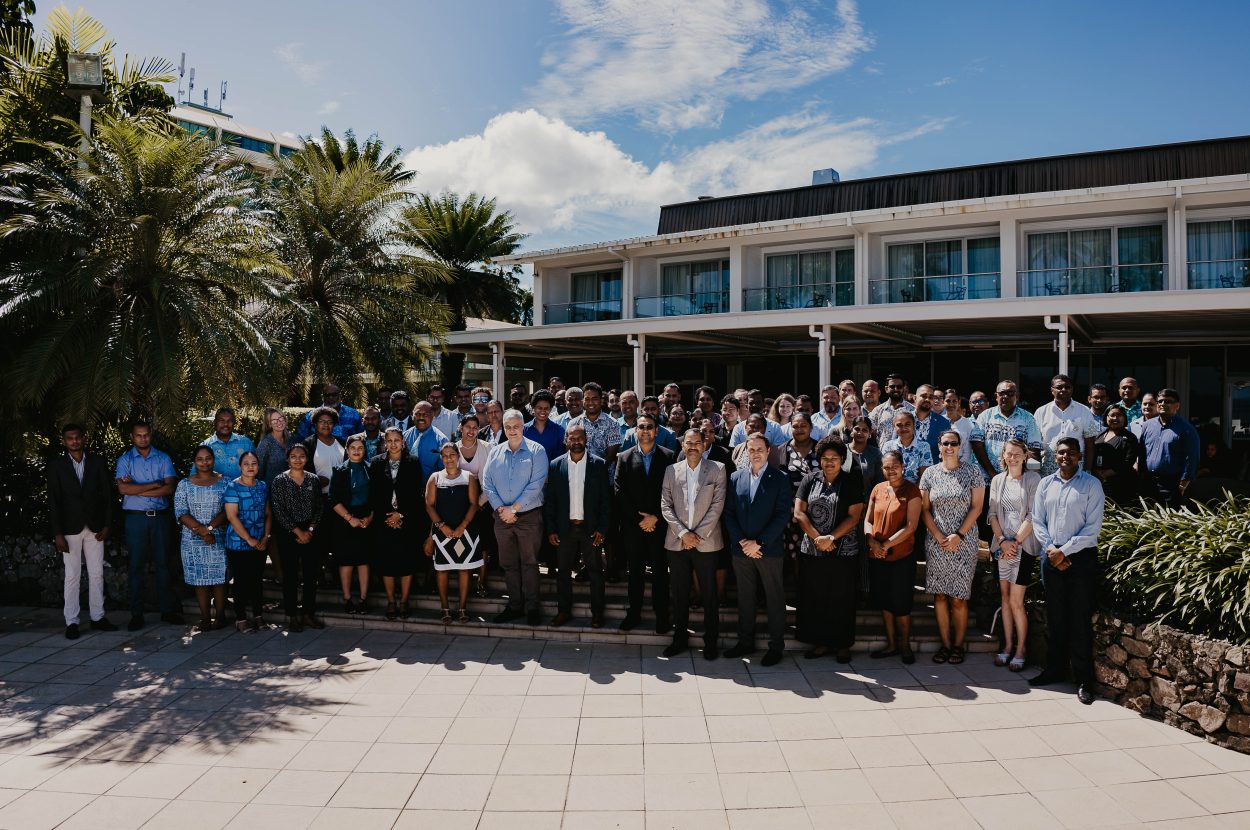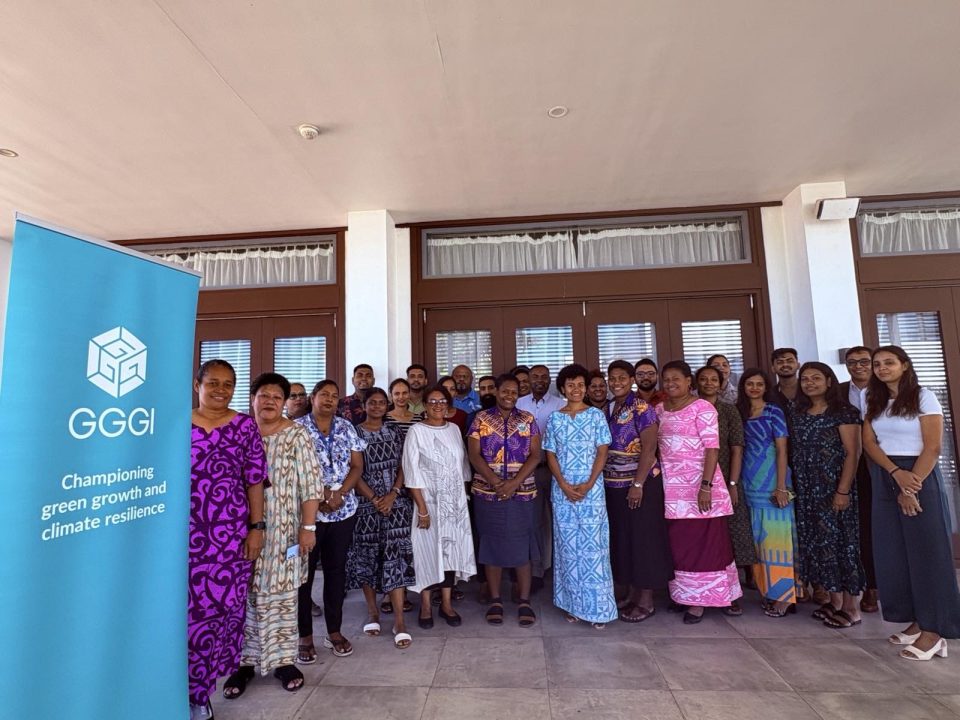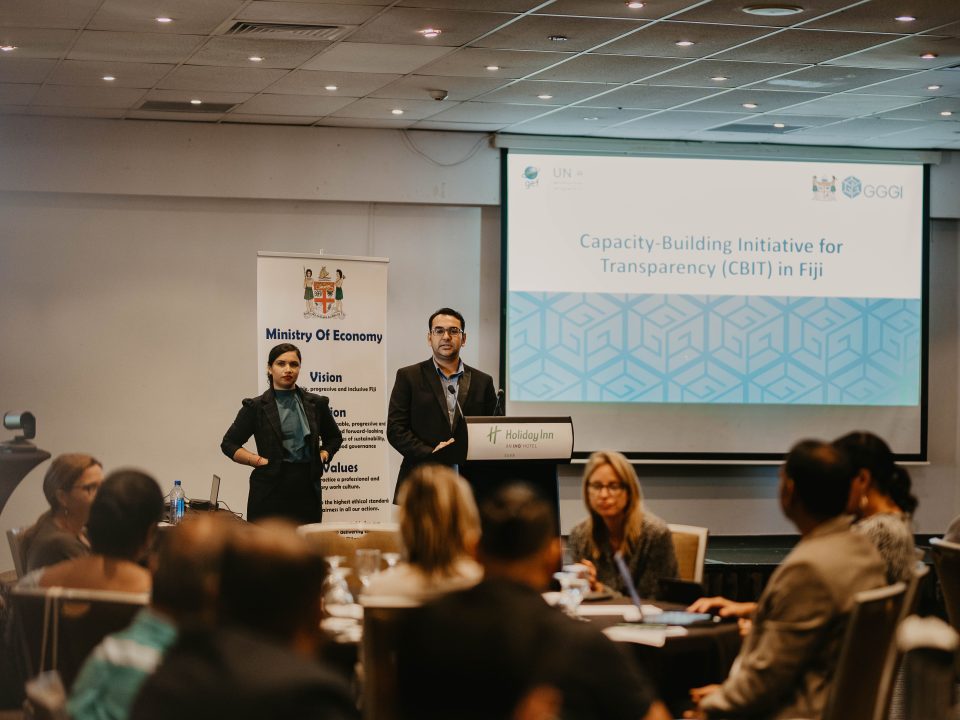
Fiji secures technical assistance support from the Green Climate Fund to strengthen access to climate finance
02/08/2022
New Parametric Microinsurance Products Launched to Cushion Impact of Climate Change in Fiji.
01/09/2022On 9 August 2022, the Ministry of Economy, the UN Environment Program (UNEP) and the Global Green Growth Institute (GGGI) launched Fiji’s Capacity Building Initiative for Transparency (CBIT) project in Suva. Over 80 participants representing senior government officials from several line ministries, civil-society organizations, academic institutions, private sectors and several development partners joined the inception workshop.
Mr Kushaal Raj, Acting Head, Climate Change and International Cooperation Division (CCICD) of Ministry of Economy gave the opening remarks highlighting ‘Measurement, Reporting and Verification and Data collection processes that have been central to the work Fiji does and this has only strengthened since having submitted First, Second, and Third National Communication and now progressing towards Biennial Update Report’. He continued that ‘following the endorsement of the Climate Change Act, the Climate Change and International Cooperation Division is mandated to capture information on greenhouse gas emissions from all sectors in Fiji, in accordance with the IPCC guidelines that will identify and determine the mitigation options applicable to Fiji, which is crucial for development plans and our long term climate target’. He concluded that ‘the overall intent of this project to develop an online system that will host the national GHG inventory systems and a MRV system for the tracking of Fiji’s NDCs. This will be Fiji’s one-stop source of GHG information and data for future reporting under the Paris Agreement requirements’.
Mr. Raj also highlighted the importance of engagement with the Fiji Bureau of Statistics (FBoS) and thanked them for their participation during the CBIT inception workshop. FBoS participated in a two-day capacity building workshop on activity data and GHG emissions reporting. CCICD will continue discussion with FBoS on further cooperation during the implementation of the CBIT project.
Ms. Ranjila Singh, Climate Change Mitigation Specialist, CCICD, MOE provided an overview of the Fiji CBIT project. Fiji’s CBIT project will formalise and strengthen the country’s institutional arrangements for the Enhanced Transparency Framework (ETF) to enable regular transparent reporting on NDC implementation and the National GHG inventory. The project will also develop an IT-based GHG inventory preparation system that enables the Ministry of Economy to efficiently co-ordinate preparation of transparent, consistent, comparable, complete, and accurate National GHG inventories. Additionally, the CBIT project will strengthen Measurement, Reporting and Verification (MRV) systems to enable Fiji in tracking and transparently reporting on NDC implementation and resultant GHG emissions and climate finance.
The direct beneficiaries of CBIT outputs are Government Ministries and Departments as well as private sectors, who will have a direct role in tracking and reporting of GHG emissions and implementation of climate change actions. Higher Education Institutes in Fiji will play an important role in capacity building by delivering required courses and trainings as per CBIT projects’ outputs and outcomes. In addition, one-to-one consultation with line ministries and private sectors will further assist in achieving CBIT outputs or GHG inventory.
Mr Daniel Muñoz-Smith, GGGI Fiji Country Representative shared overview of GGGI’s activities in Fiji. He thanked the UN Environment Program and the Global Environment Facility for providing the funding support. GGGI developed the concept with financial support from UNEP under a Project Preparation Grant.
GGGI as Co-Executing Agency and in close cooperation with the Climate Change and International Cooperation Division (CCICD) of MOE, is providing the necessary expertise to implement the activity and deliver outputs in a manner that maximizes the prospect of achieving the goals and outcomes of the CBIT project.
During the question and answer session, explicit interest was shown by private sectors for GHG inventory processes and voluntary reporting. Fiji Airports Limited shared their experience on voluntary emissions’ reporting. This was echoed by other participants that streamlining data, information and capacity building will play a greater role in fulfilling Fiji’s GHG inventory in a transparent manner.
Learning and experience from the Fiji CBIT will be shared with stakeholders and other countries in the Pacific region.




